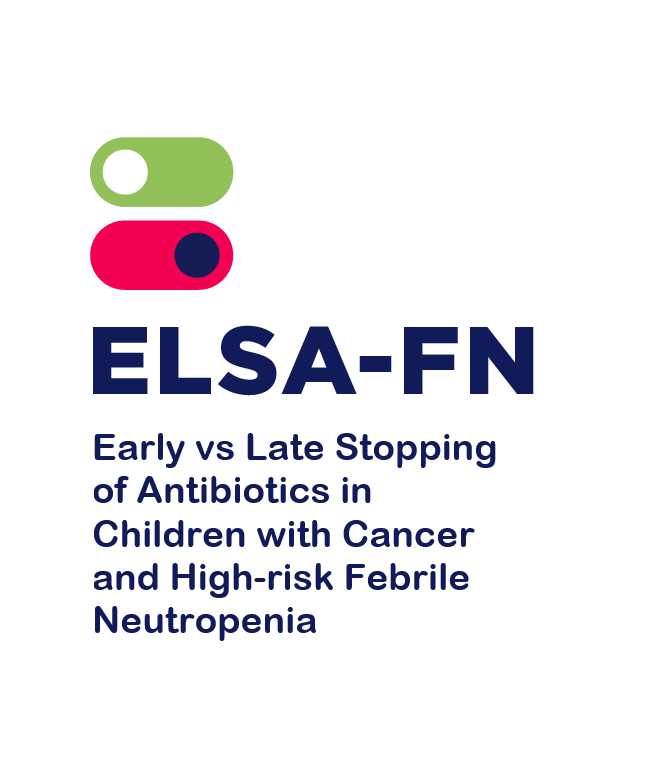Embedded Trials: ELSA-FN
The ‘Early versus Late Stopping of Antibiotics in Children with Cancer and High-risk Febrile Neutropenia’ (ELSA-FN) is the first embedded randomised controlled trial at Royal Children’s Hospital (RCH) and is part of the continuing effort to improve care for children with cancer.
The Melbourne Children’s Campus is harnessing the power of data to improve child health. We’re always striving to become a leader in digital health care. We are able to use the capability in our Electronic Medical Record (EMR) to easily study best practice clinical care as part of our day to day care in the hospital.
What we’re studying
After chemotherapy, children may have low neutrophils – a type of white blood cell that helps fight off infections. If they develop an infection and fever when they have low neutrophils (Febrile Neutropenia (FN)) it is a medical emergency and antibiotics have to be given quickly. Currently, there is no international consensus on how long to give a course of antibiotics in children with FN. US guidelines say to continue antibiotics until the child’s neutrophils increase but Euro guidelines say to stop antibiotics 48 hours after the fever has gone. This trial will compare both approaches.
While antibiotics are important for treatment of infection, unnecessary exposure has many adverse effects including:
- Increased antimicrobial resistance
- Risk of C. difficile and invasive fungal infection
- Added cost
- Disruption of the patient microbiome, with a range of secondary effects
Using the power of our data we can influence worldwide clinical best practice.
Who can get involved?
ELSA-FN is recruiting children with high-risk febrile neutropenia who are in the intensive phase of leukaemia/ lymphoma treatment, or within 30 days of stem cell transplant.
Children with cancer considered to have high-risk FN include those with acute leukaemia or lymphoma receiving high-intensity chemotherapy such as ‘induction chemotherapy’.
The trial will run for three years and involve 300 patients.
Why an embedded Trial?
While randomised controlled trials are considered one of the best ways to improve treatment of a condition, they are often costly and complex to run. Embedded trials are integrated into a patient’s electronic medical record and use data routinely collected during patient care to answer important research questions. ELSA FN embeds identification of suitable patients, consent, allocation to each arm of the study and collection of data into the electronic medical record.
Study design
The study’s objective is to determine the non-inferiority of stopping antibiotics prior to neutrophil recovery in clinically stable children with high-risk FN who have been afebrile for 48 hours, compared with standard of care. The primary outcome measure is ‘unfavourable clinical course’ and includes any recurrence of fever, new infection, clinical stability, or serious adverse events like intensive care admission. We will also look at the impact of antibiotic duration on the following:
- Duration of neutropenia
- Antibiotic exposure
- Hospital length of stay
- Readmission to hospital
- Development of C. difficile infection
- Development of an antibiotic resistant infection or colonisation
- Clinician confidence and acceptability
Study team
The ELSA-FN trial is a Centre for Health Analytics initiative in collaboration with the Melbourne Children’s Trials Centre, the Murdoch Children’s Research Institute Infection Flagship research program, and the Royal Children’s Hospital Children’s Cancer Centre.
Dr Gabrielle Haeusler– Principal Investigator
Dr Coen Butters – Co-investigator
Alannah Rudkin– Embedded trials project officer
Li-yin Goh– EMR analyst
Contact the study team at [email protected]


